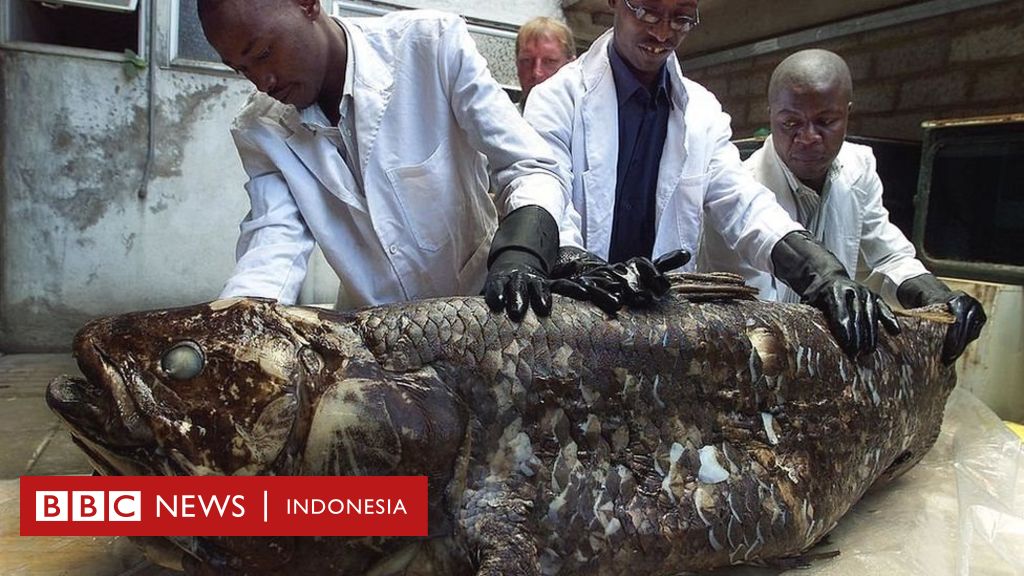Image source, Getty Images
—
The coelacanth on display at the National Museum of Kenya in 2001.
–
An ancient fish known as the coelacanth could live for a very long time, even up to a century, according to a new study published in the journal Current Biology.
–
This fish was previously thought to be extinct before finally being found in the waters of Africa and Sulawesi throughout the 20th century.
–
In previous studies, coelacanths were estimated to have a life span of about 20 years. But in the latest estimates, these fish can live for hundreds of years in the ocean, like sharks.
–
French researchers studied the markings on a specimen of coelacanth scales kept in a museum. The scales are considered the same as tree rings that can indicate the age of a tree.
–
The researchers believe coelacanths only reproduce at middle age and can contain eggs for as long as five years.
–
Image source, AFP
—
Taxidermists load a coelacanth into a tank filled with formol for an exhibition entitled ‘The Sea’ at the National Museum of Natural History in Paris, March 2019.
–
Because they produce few offspring, these slow-growing fish are very vulnerable to extinction.
–
Some of the factors that are thought to influence their existence are climate change and overfishing.
–
Knowing the coelacanth’s life history may provide a strong basis for conservation efforts for this fish, said academic Bruno Ernande from the University of Montpellier, France.
–
“One very important framework for conservation is the ability to assess the demographics of this species.
–
“With this new information we will be better able to assess it,” Ernande told BBC News.
–
Image source, Getty Images
—
Coelacanths are found around the coastlines of Indonesia and the Indian Ocean.
–
The coelacanth had long been thought to be extinct until it finally appeared in fishing nets in South Africa in 1938.
–
Two populations of later coelacanths were also found living off the east coast of Africa and off the coast of Sulawesi.
–
Its population in Africa is classified as critically endangered. Researchers estimate that only a few hundred coelacanths remain there.
–
“The coelacanth appears to be one of the late-life cycle species among marine fish, such as the deep-sea shark and the roughy (living 1.8 kilometers below sea level),” said Kelig Mahe of the North Sea Fisheries Research Unit in Boulogne -sur-mer, France.
–
“Our results suggest that this fish may be more endangered than previously thought due to its strange life history.
–
“Consequently, this new information about the biology and life history of the coelacanth is important for the conservation and management of this species,” Mahe said.
–
Image source, AFP
—
Visitors walk past a locally preserved rare coelacanth specimen, which was caught in Manado bay in 2007. This specimen is displayed at the Grand Kawanua Convention Center during the World Ocean Conference on 15 May 2009.
–
In future studies, the scientists plan to analyze it further to see if the growth rate of this species is related to temperature.
–
The answers that will emerge will provide some new insights into the impact of climate change on this vulnerable species.
–
The coelacanth’s ancestor evolved 420 million years ago, surviving continental drift and the asteroid strike that wiped out the dinosaurs.
–
Living in caves on the seabed, the coelacanth can grow up to 1.8 meters, and weigh more than 90 kilograms.
—


